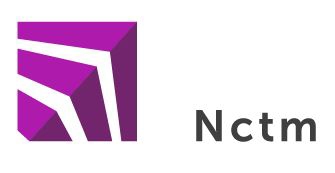Italy is widely seen as lagging behind when it comes to implementation of the digital agenda. However, while speaking at the II Italian Digital Agenda Annual Forum organised by Confindustria Digitale, Prime Minister Enrico Letta remarked that this lost ground "could still be made up" by freeing up broadband frequencies. The spectrum may be the key to making significant progress in the implementation of the digital agenda, guaranteeing all citizens a fast connection to the network, giving businesses greater access to broadband and cloud computing, and modernising public administration.
During the forum it was revealed that four out of 10 Italians have no idea what the Internet is, even though connection to the Internet is no longer a luxury and more of a necessity. According to the AGCOM (the Italian communications authority) Telecommunications Market Observatory, in the second quarter of 2013 8.8% of the Italian population risked being adversely affected by the digital divide (ie, unable to make full use of online services). Of this percentage, 3.8% lacked an asymmetric digital subscriber line, 3% had a connection speed below 2 megabytes and 2% were technically connected, but could not reach the minimum required connection speed (this figure rises to 4% when including wireless coverage of mobile networks).
As the prime minister emphasised, it is therefore crucial that Italy drives ahead by increasing "wireless connection literacy in all Italian schools". In this respect, numerous delays have led Italy to find itself behind many European countries that are now completely digitalised. A recent UN report stated that:
"Italy remains towards the foot of the global league table: 57th place in 2012 with a percentage of people using the Internet of 58%. Rural areas are obviously the most affected zones with just 17% of people able to count on a constant, good quality connection, as opposed to 89% in urban areas."
As has been reiterated on various occasions, the real problem is bureaucracy, which inevitably slows down the process. However, the digital plan appears to be on the verge of developing at a faster pace. As Letta confirmed, the various steps seem to be clearly marked out:
"[T]he statute of the Digital Agency has been approved by the Italian Government and we hope it can come into force by the end of the year. The same goes for the decree for the public digital identity system. The second regulation on digital identities is expected for the end of 2013, which in the first half of 2014 will undergo a transition period and in 2015 will be fully functional."
The agenda must be fully implemented if Italy is to meet demand for European wireless broadband services by 2020 and comply with the intermediate objective for 2015 – that is, finding 1,200 megahertz of spectrum for electronic communications. A key step in the digital development process will be the next International Telecommunication Union World Radio Conference in November 2015, at which new portions of the spectrum to be allocated will be identified. In addition, based on new international regulations, the authority will be able to set rules and procedures for the allocation of the spectrum by way of a careful and precise planning process that seeks to reconcile the interests of all parties.
In response to the demand for the spectrum, AGCOM Commissioner Antonio Preto reiterated that:
"aside from the availability of frequency bands, we will be able to use new and more efficient compression standards, more dynamic sharing systems and all of the other technological tools that you, industry operators, will outstandingly develop. In this way [telecommunications companies] and broadcasters, both expanding industries, will be able to take advantage of adequate space and tools for their activities."
Preto continued:
"AGCOM will aim at freeing the bands that have already been harmonised on the basis of expected demand and will be active in the European and international context to support harmonisation and make full use of the radio spectrum, a key public resource for the future of electronic communications, [telecommunications companies] and broadcasters, as well as for our society."
For further information on this topic please contact Vittorio Noseda or Carlo Grignani at NCTM Studio Legale Associato by telephone (+39 02 72 5511), fax (+39 02 72 55 1501) or email ([email protected] or [email protected]). The NCTM Studio Legale Associato website can be accessed at www.nctm.it.



